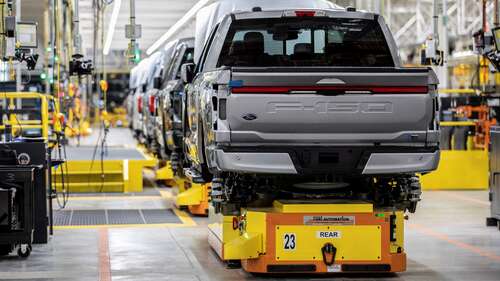
As many an American historian might tell you, just because World War II was primarily fought abroad, that doesn’t mean that life in the United States was unaffected on a domestic scale. Indeed, the second World War initiated a total societal upheaval for those at home in America.
Numerous industries and businesses, such as those based in food and entertainment, focused their full efforts on producing goods to aid the Allied war effort. Henry Ford publicly took a staunch stance against American involvement during the war, but it was only a matter of time before Ford as a company also found its operations radically altered by wartime.
In January of 1942, roughly one month after the Japanese attack on Pearl Harbor, the United States federal government ordered Ford to cease all sales of its civilian cars indefinitely. The company was subsequently ordered to stop production on its regular slate of products by February.
The ensuing months would see Ford almost completely reallocate its resources to the production of military vehicles and weapons, including Allied WWII tanks, airplanes, and gun ammunition. It was a major shift for the company, which had previously maintained an official stance of manufacturing neutrality and, notably, a partnership with Nazi Germany for the production of wartime materials.
Of course, Ford was not the only car company that faced these federal mandates during World War II. The government’s orders to stop sales and production of civilian cars were industry-wide, and other companies like General Motors underwent similar transformations into major sources of production for the Allied war effort. The result was a complete and utter stoppage of the production of civilian cars — a major shift in the market that would last for multiple years.

